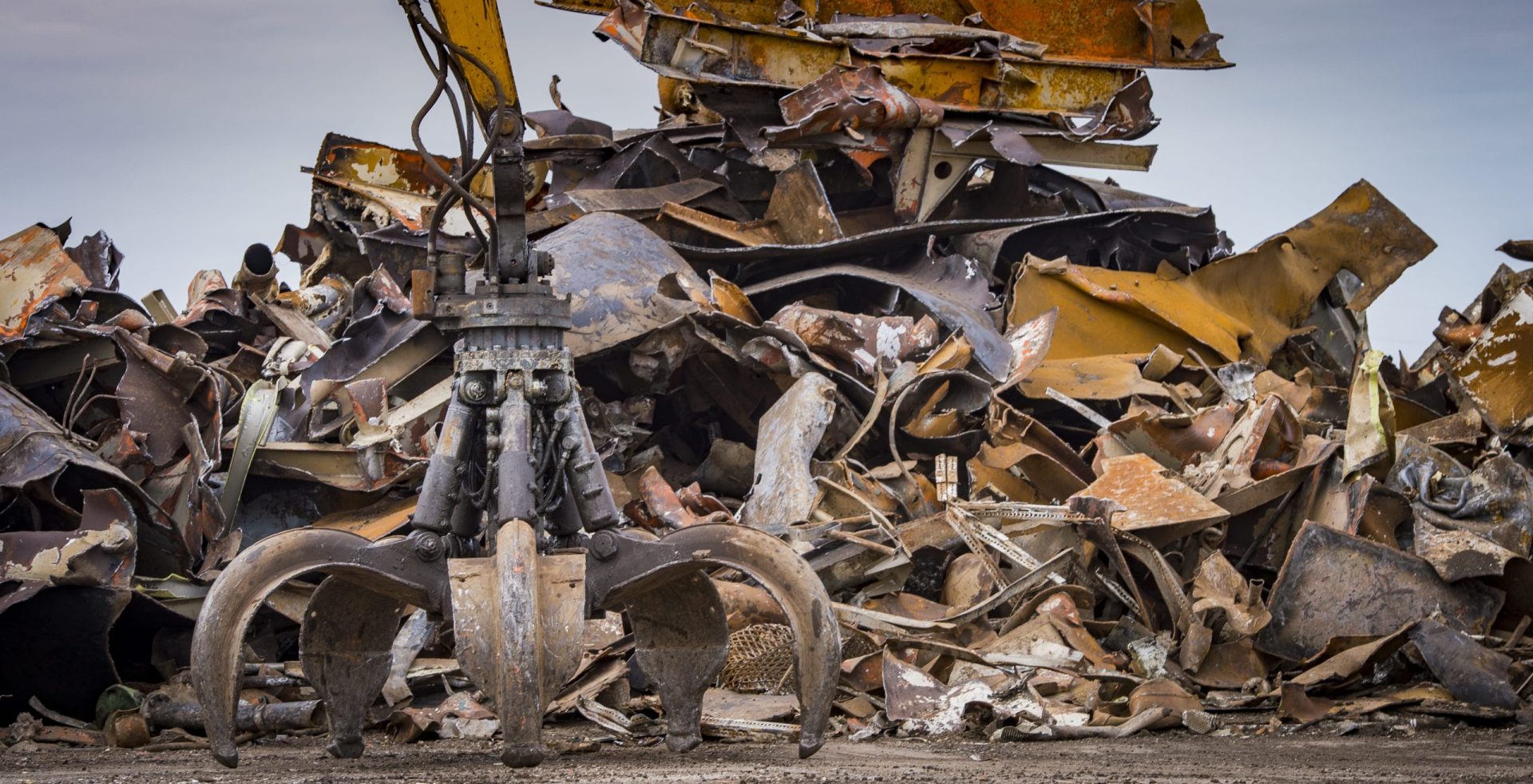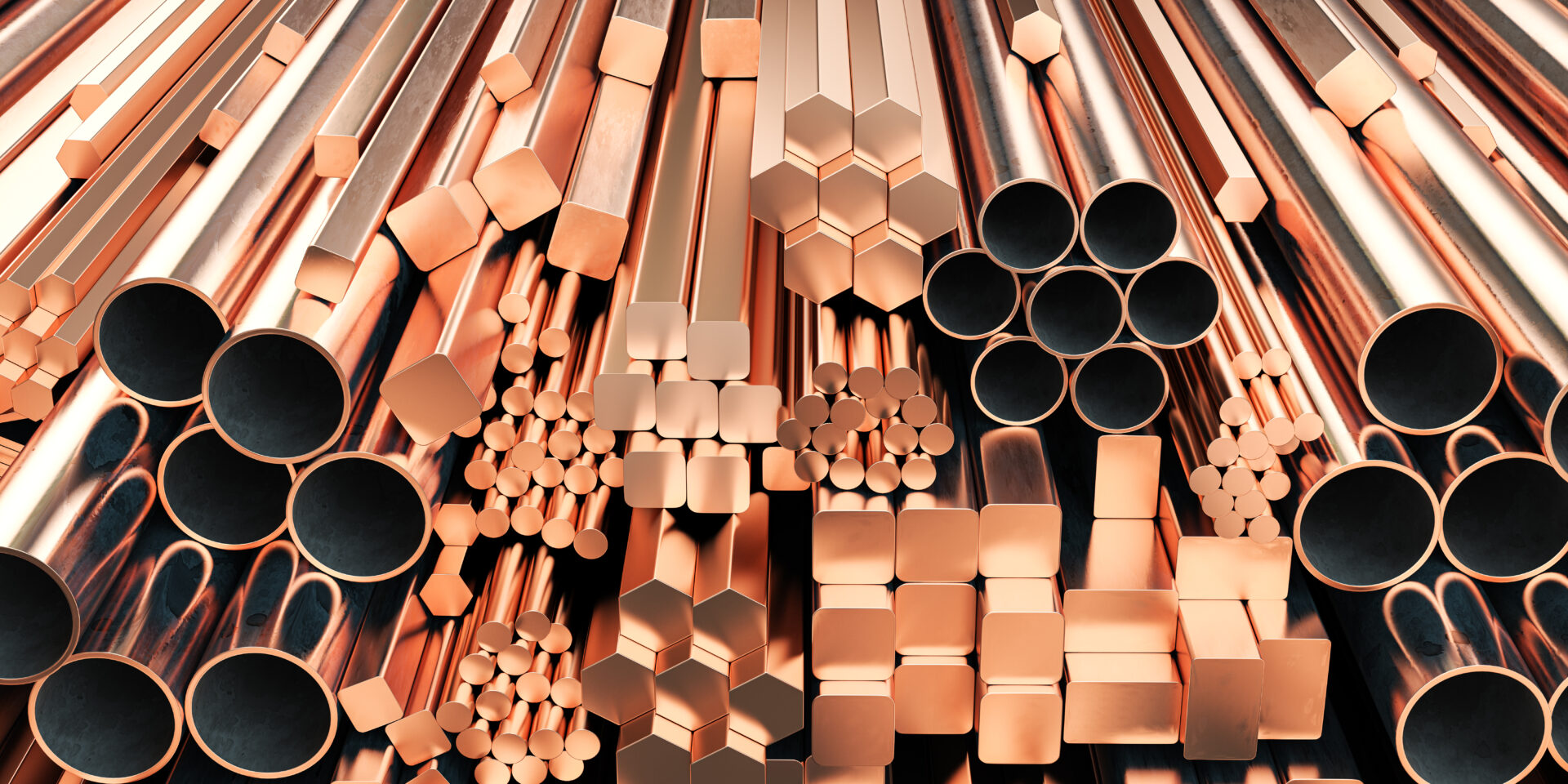
If there’s one thing Michigan has long been known for, it’s being the historic heart of the American automotive industry. There have been so many auto manufacturing plants in the state that Detroit took on the nickname “Motor City,” and it was Michigan’s own Henry Ford who pioneered the use of the assembly line in manufacturing automobiles here.
Not surprisingly, a spin-off field has also been thriving for decades, and that’s the scrap metal industry. In the 1950s they were simply called scrap yards, but today the proper term is Recycling.
With so much scrap being generated through the state’s manufacturing and production plants, recycling firms have become a large employer in Michigan. In 1996, the State of Michigan even secured a grant from the U.S. Environmental Protection Agency to expand ways to recover scrap waste, to ensure the parts that still have value would be reused once automobiles have outlived their usefulness.
For years, those parts have been successfully recycled into appliances, building materials, new autos, and a lengthy list of other products.
Quite simply, recycling metal has become an economic necessity in this state that produces so much leftover materials from the auto manufacturing process.
The enduring strength of the state’s recycling industry is about to get fiercely tested as the Trump Administration moves into an escalating trade war with China. Since Michigan is a major exporter of scrap, the economic impact of this trade war could create far more economic worries here than in some other states.
The bottom line is that for years, China has been the largest consumer of scrap commodities, while Michigan was a major exporter — generating multi-millions of dollars in business from recycling metals overseas.
Since China slapped retaliatory tariffs on aluminum waste and scrap last April, Michigan recycling operations have been bracing for some economic pain and no one is quite sure how this will play out.
Why Is Michigan Facing a Trade War?
It isn’t just the rhetoric that’s heating up in the trade war between the U.S. and China. At the start of September, China announced it would take countermeasures if the U.S. imposed tariffs on $200 billion worth of goods it imports from Chinese manufacturers, as promised by President Donald Trump.
The U.S. and China are the world’s two biggest economies, and both levied initial 25 percent tariffs on $34 billion worth of each other’s products on July 6. Late in August, that got extended to an additional $16 billion of goods.
China, which imports about $150 billion worth of U.S. goods annually, announced in August new tariffs on an extra $60 billion of U.S. products, with duties in bands ranging from 5 to 25 percent.
For Michigan recyclers, the most troubling factor was that China included 25 percent tariffs on $16 billion in U.S. scrap commodities, including copper, nickel, and stainless steel. Now up to $1 billion in total exports for Michigan products to China are at risk because of the new tariffs.
Michigan isn’t alone. The U.S. Institute of Scrap Recycling Industries, the trade group representing this industry, has reported that the U.S. exported $5.6 billion worth of scrap commodities to China in 2017, which included plastics, paper, and metals.
And the industry was already facing an uncertain year after China decided in 2017 to tighten its standards for accepting recycled materials from the U.S.
For a lot of scrap recyclers, China has traditionally made up a solid percentage of their business.
How Is Michigan Coping with the Tariffs?
It isn’t just those in the scrap and auto manufacturing industry that are concerned about the tariffs. Another top product that gets exported to China is vegetables and plenty of Michigan farmers have similarity started sweating over the tariffs.
Still, right now the focus has been on the industrial sector and the $24.3 million worth of aluminum waste and scrap exports to China that are now at risk.
And ironically, this is happening just as the scrap recycling industry was experiencing strong growth, thanks to the booming U.S. economy and to the rising urbanization in many developing countries. Both trends have produced high demand for recycled metals that can be used in manufacturing, construction and other projects.
The industry’s strength goes back to two critical needs that are environmental and economic. In Michigan, the recycling industry has been able to take discarded or unfinished materials and recycle them for new use at assembly lines in the automotive and defense industries. These recycling materials are also sent throughout the United States for manufacturing reuse.
This process serves two important purposes. The first is environmental. Any time scrap is sent to landfills, there’s the risk of toxins within it seeping out into the soil and water, posing serious environmental contamination risks.
The second is economic. Using recycled scrap to make new products is far less costly than having to mine for virgin ore to get what’s needed to make brand new metals.
Metals can be recycled repeatedly and the process uses considerably less energy and natural resources than mining does.
And we also know that accelerating urbanization and industrialization in many countries has led to an increased need for recycled metals, which is why the metal recycling market is projected to grow from $277 billion in 2015 to $406 billion by 2020.
How much of a monkey wrench will the trade war toss into this mix?
Clearly, the impact won’t be as sharp for companies that don’t send exports to China. But there’s a shared concern about reduced profits if prices fall for aluminum, copper, and stainless steel as the tariffs go into effect.
And there’s also the concern that American-made goods will become more expensive overseas once retaliatory tariffs have been imposed by China on U.S. exports.
Michigan’s scrap recyclers are also nervous about scrap prices falling in the U.S. because of an oversupply domestically of steel and aluminum.
This is more than just a short-term concern. If profits fall, that means scrap recycling firms will find it challenging to expand, make new investments in their facilities, and hire more workers.
The impact of that will be felt well beyond the doors of each scrap recycler. The Institute of Scrap Recycling Industries has warned about the long-term economic costs of tariffs for the entire industry.
It’s been said that tariffs produce winners and losers, and this year has offered dramatic examples of that.
This year, the steel industry has benefited from growing demand in the U.S. and has seen an increase in hiring after President Trump imposed tariffs in March on steel and aluminum imports, including a 25 percent tariff on steel imports and a 10 percent tariff on aluminum imports from Canada, Mexico and the European Union.
U.S. steel prices have jumped by more than 50 percent since January as a result.
But now on the flip side, auto suppliers and manufacturers who recycle surplus scrap metals are being hit by lower prices, since metal tariffs directly affect scrap metal prices and market value for all major commodities in scrap. One reason prices could go down is because it’s now too expensive to move metals internationally.
At the moment, though, just how much tariffs will affect scrap metal prices, and to what degree, isn’t fully known.
Michigan may be in the front lines throughout the rest of this year in learning that lesson.
Conclusion
It’s too early to predict with any accuracy how Michigan is going to be impacted by the U.S.-China trade war, although this state with a large auto manufacturing sector and a similarly large scrap recycling industry is sure to feel some headwinds from it.
In the meantime, we do know there is a constant need for scrap metal that can be recycled, which is why it’s important to bring all scrap metals to a recycler like GLE Scrap Metal, which is a full-service, all-in-one recycling company with operations throughout the U.S.
GLE Scrap Metal recycles millions and millions of pounds of scrap metal each year and employs an experienced logistics team that handles its expansive fleet of trucks as well as equipment for jobs of any size, at any facility.
To learn more, call GLE Scrap Metal at 855-SCRAP-88.



